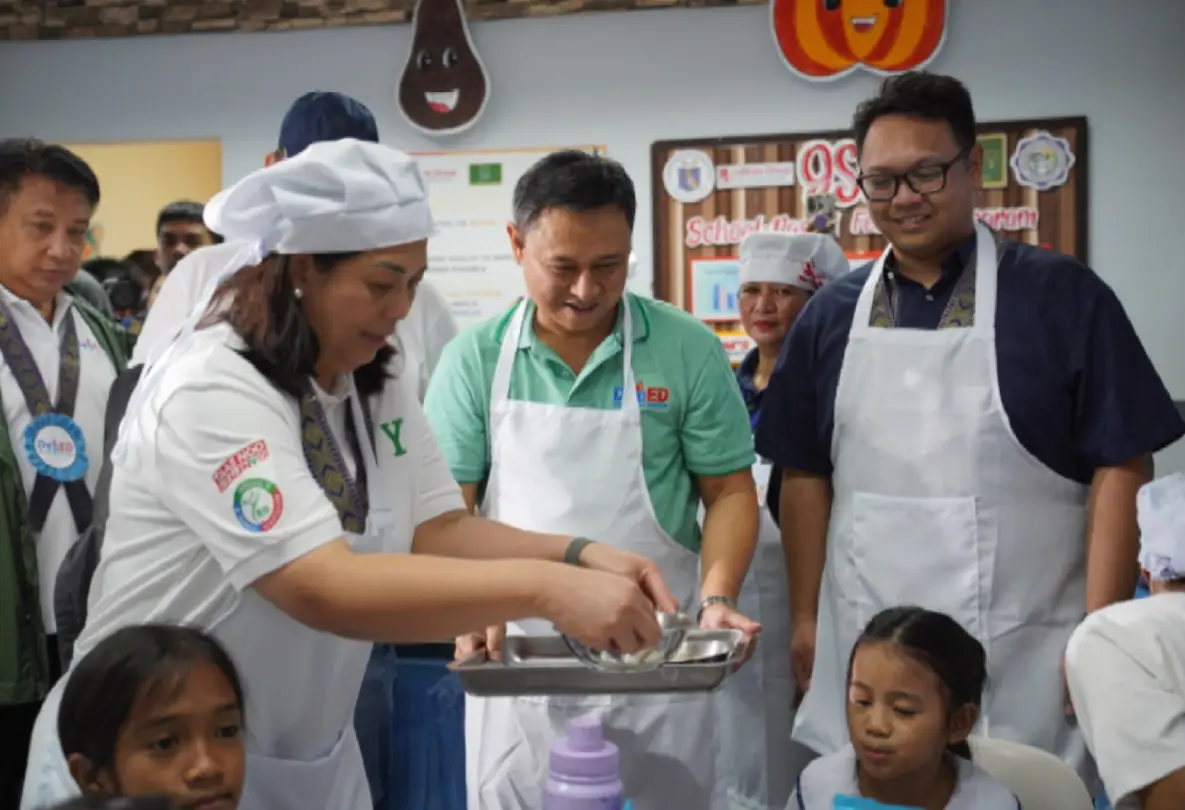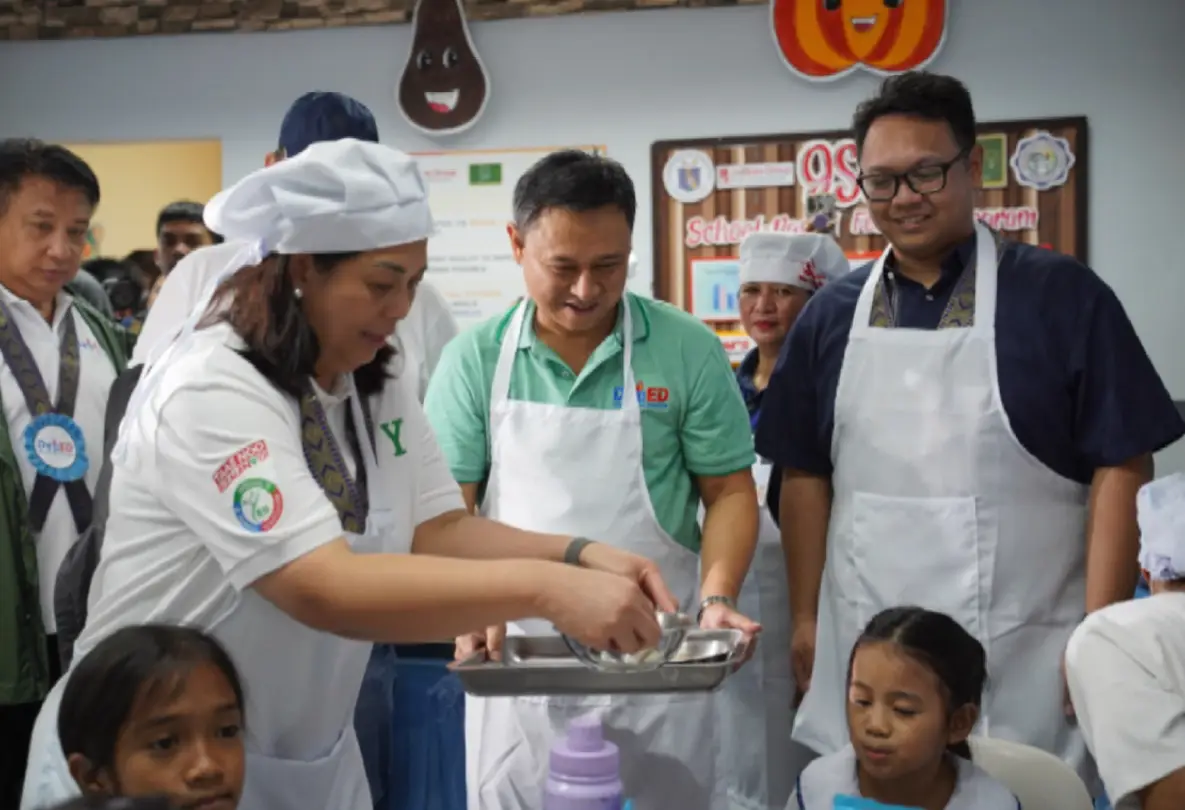PBBM admin expands school-based feeding to all Kinder learners in landmark nutrition push

SHARE
In a historic first, all public Kindergarten learners across the country will now receive daily meals through the Department of Education’s expanded School-Based Feeding Program (SBFP), as part of a broader national strategy for human development of President Ferdinand R. Marcos Jr.’s administration.
With a record ₱11.77 billion allocated for 2025 and a proposed ₱14 billion for 2026, the Marcos administration is signaling its firm commitment to combating early childhood malnutrition during the launch of the SBFP program in Juan Sumulong Elementary School in Antipolo, Rizal Province.

“Kapag may sapat na nutrisyon ang mga bata, mas madali silang matuto. Hindi natin kailangan hintayin pang magutom o magkasakit sila bago kumilos,” Education Secretary Sonny Angara said. “With the strong support of the President, we are investing not only in education, but in lifelong health, productivity, and equity.”
To be implemented over 120 school days, this year’s expanded SBFP now includes all Kinder learners—not just the undernourished—as part of the shift toward universal early nutrition. For the first time, DepEd is providing hot meals and fortified food products to around 3.4 million Kindergarten and Severely Wasted and Wasted Grade 1-6 learners.
This shift is informed by clear results since last school year, the number of severely wasted Kindergarten children was reduced by more than half, from 113,451 down to 47,281. Improvements were also recorded in energy levels, class participation, weight gain, and overall health. Teachers and principals nationwide report that children in the program come to school more alert, more engaged, and more ready to learn.
In Region II (Cagayan Valley) and Region XI (Davao), cases of severely undernourished Kinder learners fell by about 80% after the feeding program.
The SBFP’s infrastructure has also evolved to support the program’s growth. More than 74 central kitchens are now functional, enabling efficient food preparation and distribution to thousands of schools. Meanwhile, over 44,000 schools are actively participating in the Gulayan sa Paaralan Program, producing fresh vegetables that supplement meals and provide practical nutrition lessons to learners.
Meanwhile, DepEd and its partners, including LGUs, the Department of Health, the DSWD, and civil society groups, emphasize that sustained impact requires coordinated investments in instruction, health services, parenting support, and school readiness.
“Sama-samang gawain ito. Gobyerno ang nangunguna, pero kailangan ang suporta ng buong komunidad,” Angara said. “Bawat magulang, school officials, LGUs, at barangay health worker ay may papel para siguraduhing hindi lang basta nakakakain ang mga bata, kundi talagang nabubusog, inaalagaan, at nabibigyan ng lakas para umunlad.”
Future plans include refining the meal components, improving data tracking of learners’ health outcomes, and expanding partnerships with local farmers through home-grown school feeding models. The Department is also studying further coverage for Grades 1 to 3, who remain vulnerable to learning delays linked to nutrition deficits.
As the Marcos administration charts a path toward a more inclusive and resilient future, the investment in SBFP provides a strong direction that the nation’s youngest learners deserve no less than a healthy beginning.
*All Photos from DepEd
RELATED ARTICLES

‘Gift of Fortune’ Chinese New Year Stay Package

Pastors Speak as Darkness Comes to Light

James Van Der Beek’s Last Words: Worthy of God’s Love

Our Pledge to You: Optimal comfort, Convenience, and Flexibility








